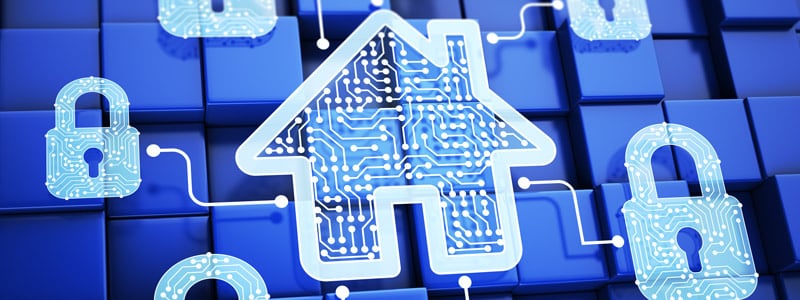6 Cybersecurity Tips for the Home
 It used to be that only one person at a time could access the internet using a landline. Remember those days? For the younger readers out there, you have no idea what I'm talking about. You might even be Googling "what is a landline" as we speak.
It used to be that only one person at a time could access the internet using a landline. Remember those days? For the younger readers out there, you have no idea what I'm talking about. You might even be Googling "what is a landline" as we speak.
But times have changed since my sister and I were arguing over who deserved more AOL time after school. These days, kids are streaming YouTube videos on their iPads, parents are looking up anything and everything on their mobile phones, and even the family pet is entertained by something on Netflix.
It's because of all this that it's more important than ever for everyone accessing the internet to be up to date on the latest cybersecurity best practices. The following tips are from the National Cyber Security Alliance.
1. Keep a Clean Machine
Having the latest security software, web browser, and operating system is the best defense against viruses, malware, and other online threats. Mobile phones and tablets need regular updating, too.
2. Share with Care
Think before posting about yourself and others online. Consider what a post reveals, who might see it, and how it could be perceived now and in the future.
3. Treat Personal Information Like Valuables
Information about you, such as your purchase history or location, has value––just like money. Be thoughtful about who gets that information and how it’s collected through apps and websites. Don’t reveal personal or financial information in an email, and do not respond to email solicitations for this information. This includes following links sent in email.
4. Lock Down Your Login
Always enable the strongest authentication tools available, such as biometrics, security keys, or a unique one-time code through an app on your mobile device. Your usernames and passphrases are not enough to protect key accounts like email, banking, and social media.
5. Back It Up
Data can be lost in several types of incidents, including computer malfunctions, theft, viruses, spyware, accidental deletion and natural disasters. So it makes sense to back up your files regularly. Protect your valuable work, music, photos, and other digital information by making an electronic copy and storing it safely.
6. Secure Your Wi-Fi Router
Set a strong passphrase (at least 12 characters long) for your Wi-Fi network. Focus on positive sentences or phrases that you like to think about and are easy to remember (for example, “I love country music”). Name your network in a way that doesn’t let people know it’s your house.

